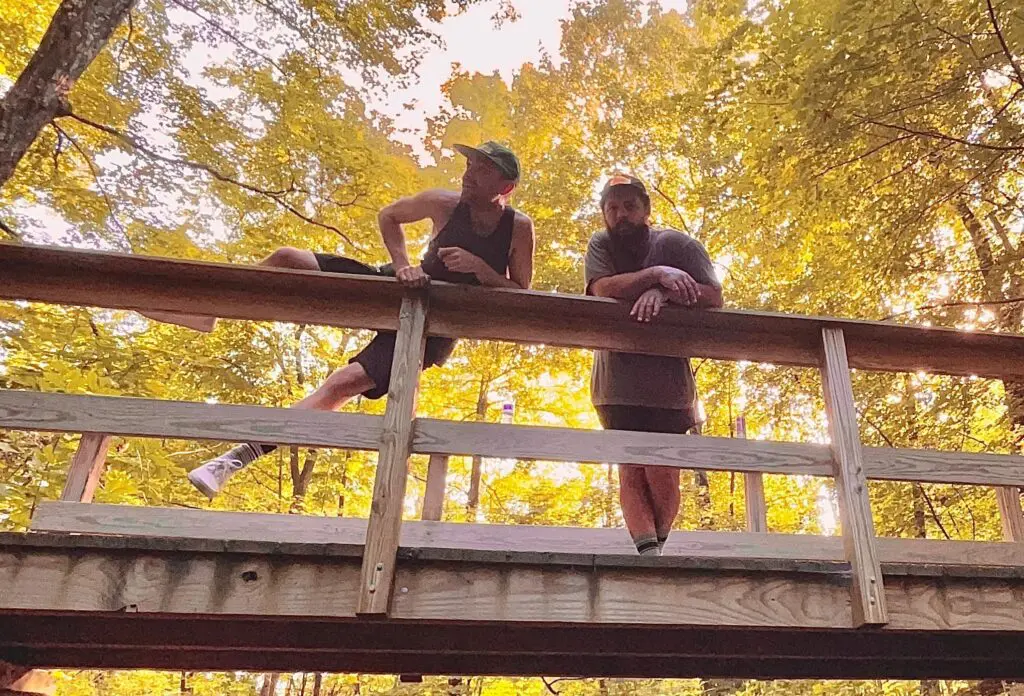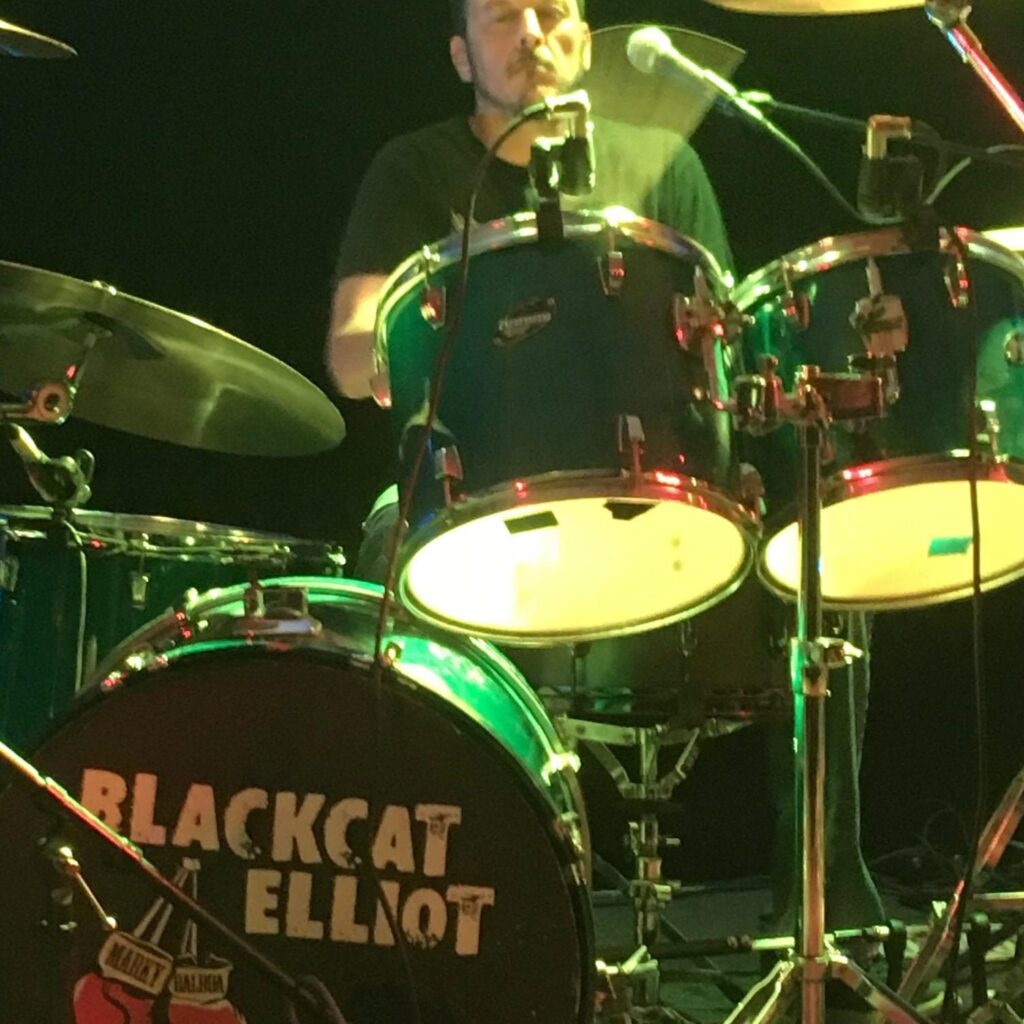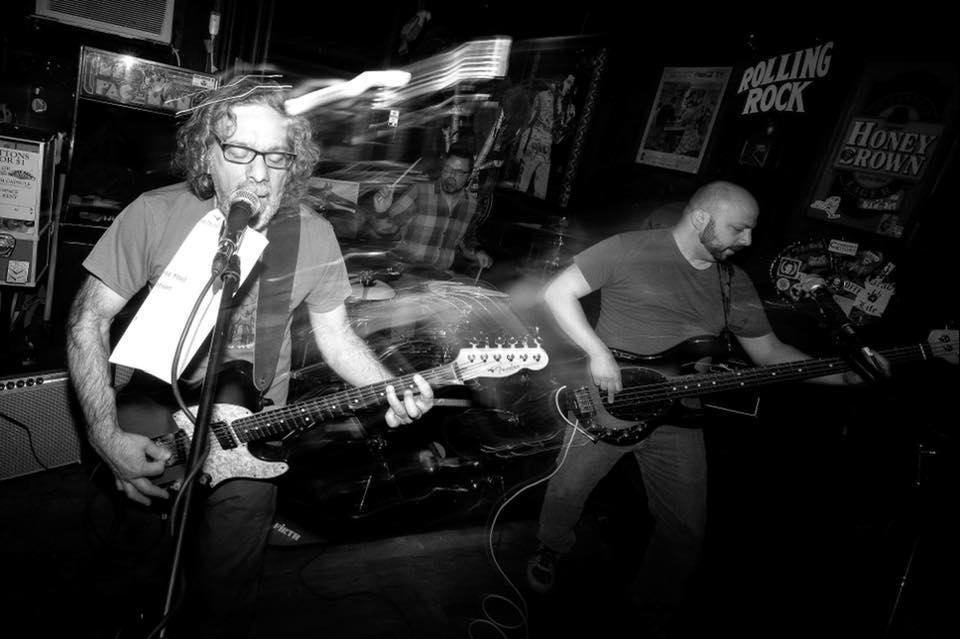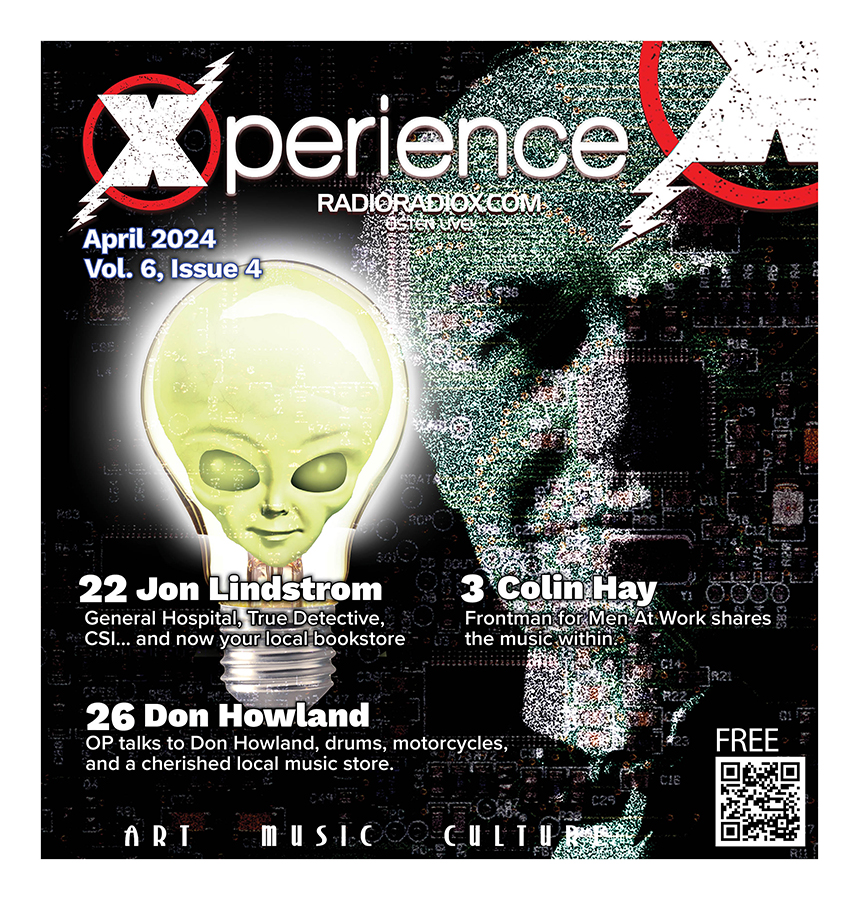Jon Lindstrom – An Xperience Interview
Written by Staff on April 2, 2024
Jon Lindstrom – An Xperience Interview – by Liam Sweeny.
There’s nothing more frightening that putting out a book. As much fun as it can be, you never know what kind of journey it’s going to take. But Jon Lindstrom, veteran actor of soap operas, television and film is giving the written word a go.
RRX: You’re an actor, among other things, and one of those other things is a drummer. I’m a big fan of synergy and seeing how talent can apply to multiple areas of life. Did you start out as a drummer, or did you pick it up during your acting career? And either way, how do the skills you need to be a good drummer transfer to acting, or vice versa.
JL: I started playing the drums long before I became seriously involved with acting. But I was probably 16 before I did a real role in a stage play, and I had played with a couple local rock outfits well before then. But acting was something I was always drawn to, mainly because I loved movies so much. Drumming has been very important to my development as an actor and has also informed my creative life as I moved into screenwriting, directing, and finally writing novels. Mainly, it’s because of the dialogue, and how that influences the rhythm you develop being a percussionist.
RRX: You’re very well known for your roles on General Hospital, and the spin-off Port Charles. But you’ve been in a ton of stuff, including True Detective, Bosch, Homeland and NCIS: Los Angeles. You have multiple Daytime Emmy nominations. What has been your biggest challenge in Hollywood?
JL: Staying in it. I always say that breaking into Hollywood is hard, staying in is harder. It’s really true. Over 70% of the actors listed on imdb can claim exactly one credit. The attrition rate is astounding, especially when you consider how badly so many people want to be a part of it.
RRX: You’ve just written a book called Hollywood Hustle, about a has-been film star and a kidnapping. I have to ask, as a fellow novelist, where your main character comes from. Is he based off of someone you know, or a stitching together of people? Is he you looking at a possible future in some deep dark mirror, a reflection of some aspect of your own life?
JL: Winston Greene is definitely a composite of many people I’ve known in this town. I don’t have enough fingers and toes to count the ones I’ve personally seen careen into oblivion due to their demons. Some pull it together, some don’t. I think with Winston I wanted to give some props to those who are strong enough to get their shit together and make hay with what’s left over. You know what they say; Trust is a hard thing to gain, but easy to lose. Once you lose the trust of the people hiring you, you’re pretty much done. I can say I’ve flirted with disaster more than once, but that was long ago. Feels like a whole other life now, mainly because it is. But I learned early on in life that there’s no one to pull you back from the abyss but yourself.
RRX: Writing is hard because you need form and substance, and while I believe everybody has enough to write a book, few people know how. But as an actor and director, you are immersed in storytelling, in the guts of it. What were you able to gather into your “toolbox” from Hollywood itself?
JL: Indeed. I think everything I’ve done was possible because of an almost unconscious preparation I gained as I learned and tried different fields of creativity. For example, Acting led me to screenwriting (which I basically learned by reading about a thousand scripts, good and bad), that led to directing (which I basically learned by watching a thousand movies), which took me even deeper into structure, motivation, plot vs story, etc. Finally, book narration took me deeper into creative writing than anything before it. When you narrate you need to lean in much harder to the text than when you’re just reading for pleasure. It all added up.
RRX: I know a lot of people ask an author what inspired them to write, but asking any creative why they engage in creative pursuits is going to produce an answer you wouldn’t understand if you had to ask. But screw it. What turned the light bulb on for you?
JL: Honestly, I can’t remember not having some kind of creative impulse, but when it came to writing, there was just a need to do it. I can’t paint, I was only an OK drummer. I’m a good actor but you need a real support crew around you to do a production of any kind. Same is basically true for music since most of us only play one or two instruments. Even screenplays are often developed by committee, so I suspect it was the solitude and freedom that writing represented to me that pushed me over the edge. There’s no one else to take the credit or the blame, but there’s no one telling you what to write, either.
RRX: Art is always about pushing the envelope, even if it’s just pushing your physical technique to a new level. Do you feel you pushed the envelope with Hollywood Hustle? If so, was it a departure from the way you push yourself as an actor, or a dovetail?
JL: This definitely pushed me farther that I’ve ever gone before. Even writing and directing a feature film didn’t require as much (as I mentioned above, there’s support around you to get it done). I think in any creative endeavor you reach a point of no return: You’ve come too far to abandon it and have to see it through. But with Hollywood Hustle there was just no one else but me on that cliff. Going through the whole journey to publication often felt like a “soar or crash” situation.
RRX: This is where you answer the question I didn’t ask. Comments? Remarks? Educate, enlighten, emote – the floor is yours.
JL: The only thing I would add is of anyone feels this is something you really desire to do, then do it. I wish I had conquered my fear of it decades ago. I could be several books in by now. Remember the Johann Goethe quote- “Whatever you dream you can do, begin it. Boldness has genius, power and magic in it. Begin it now.”
Pick up Jon’s book, “Hollywood Hustle” at Amazon or your favorite local bookstore.





 RadioRadioX
RadioRadioX